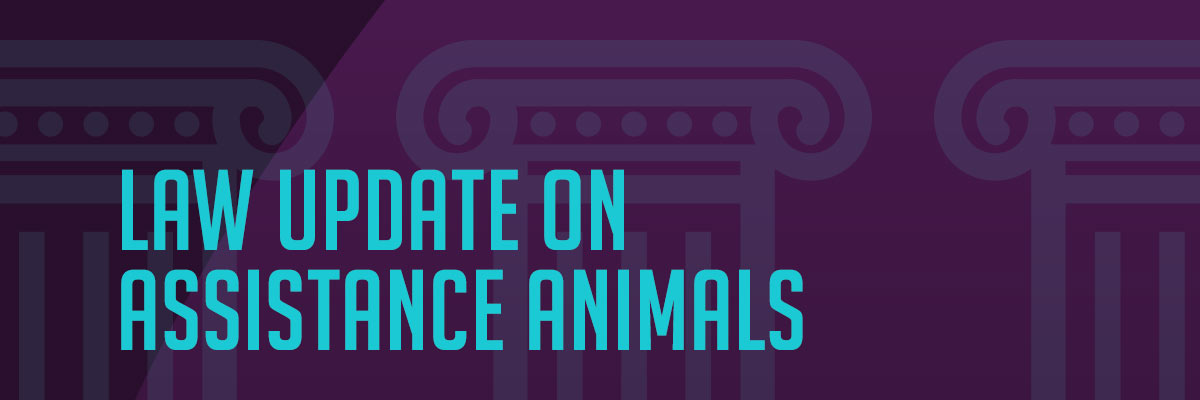Law Update on Assistance Animals
September 12, 2023

One issue we hear about consistently from members is assistance animals and residential rental units. Often property managers and landlords feel tenants may be taking advantage of fair housing laws to bring an animal into a rental that should be classified as a pet instead of an assistance animal.
A new law recently went into effect in Virginia this past July 1 that addresses some of these concerns. House Bill 1725 has added language to Virginia’s Fair Housing Law stating that no person shall provide fraudulent supporting documentation to evidence the existence of a disability or disability-related need for a person requesting a reasonable accommodation for an assistance animal. Additionally, if a person does present fraudulent supporting documentation, it is a violation of the Virginia Consumer Protection Act.
The Virginia Consumer Protection Act allows any person who suffers a loss as the result of a violation to sue for actual damages, or $500, whichever is greater. If the violation is willful, the trier of fact can increase damages to three times actual damages or $1,000, whichever is greater.
This means that if you receive documentation from a health care provider, caregiver, or someone claiming to have a therapeutic relationship with the tenant to establish a disability or disability-related need, and that documentation is fraudulent, then you can pursue a claim under the Virginia Consumer Protection Act.
However, keep in mind that this new provision in the law does not increase or change the requirements for qualifying for an assistance animal. This new provision only provides property managers and landlords with some recourse should they receive fraudulent documents to support the request for an assistance animal.
You might also like…
“I represent a buyer. What disclosures is the seller obligated to provide us if unrepresented?”
By Ryan Leonard - January 9, 2025
*Please note: Any questions regarding Legal Hotline Spotlights should be submitted via the Virginia REALTORS® Legal Hotline. Our attorneys are unable to respond to questions through our comments section. Q:… Read More
“My seller wants to terminate our listing agreement but hasn’t signed the Release of Brokerage Agreement. Do I stop doing showings?”
By Jon Haley - December 31, 2024
*Please note: Any questions regarding Legal Hotline Spotlights should be submitted via the Virginia REALTORS® Legal Hotline. Our attorneys are unable to respond to questions through our comments section. Q:… Read More
FinCEN’s Beneficial Ownership Rule Is Back…Not So Fast
By Sean Olk - December 31, 2024
On December 23, 2024, the United States Court of Appeals for the Fifth Circuit lifted a temporary nationwide injunction that halted the Corporate Transparency Act’s implementation and enforcement… Read More